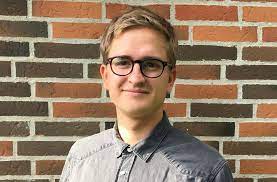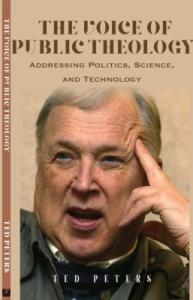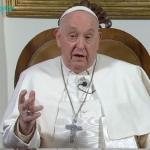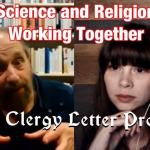What is Public Systematic Theology? Part Three

Like my dog Angie out for a walk, in this Patheos column I would like to sniff and search around every tree where public discourse could benefit from theological clarification. I’m aware that many assume theology only deposits what dog-walkers need to take home in their little bags. Even so, the insight and wisdom I find in theology should make tails wag. I like public systematic theology just as Angie likes a meaty bone.
In “What is Public Systematic Theology?” parts one and two, I’ve been reading and responding to the erudite new work of Danish theologian Michael Agerbo Mørch. Let’s ask what Dr. Mørch thinks.
Meet Professor Michael Agerbo Mørch
Our brief interview is with Michael Agerbo Mørch. He is an assistant professor of systematic theology at Dansk Bibel-Institut and Fjellhaug International University College in Copenhagen. He holds a PhD from MF Norwegian School of Theology, Religion and Society (2022). What prompts our interview is the word, public, in his new book, Systematic Theology as a Rationally Justified Public Discourse about God (Gottingen: Vanenhoeck & Ruprecht, 2024). Why would a systematic theologian address the wider public rather than the church? Let’s find out.
-
When you use the term, ‘public’, what exactly does ‘public’ mean? Whom do you expect the systematic theologian to address?
Excellent question. I use ”public” in two ways where only the first is related to context. Here, by “public” I mean the wider context of the university as you also mention in your discussion of my work by making a reference to David Tracy. The other use of “public” is a reference to my criterion of intersubjectivity. Theology must be discussed in a language that is understandable and accessible to non-theologians. So, in my book I focus on the academy but personally I’m only deeply engaged in addressing the culture in a broader sense.
-
Why should a public systematic theology rely on coherence?
Because it makes the language of theology open for intersubjective critique. By this, we have a common criterion that we can use for assessment of the propositions, ideas, and theories of theology. This is of course related to my presupposition that theology is about investigating truth, and I regard coherence the most important criterion for truth. But if you have a more pragmatic understanding of theology, then it is less obvious that coherence should be so focal.
-
A contextual or constructive theologian might object that your coherence would have a Eurocentric effect of silencing the distinctive experience of previously colonized voices. How might you respond?

Michael Agerbo Morch on public systematic theology I would say that it’s quite the opposite of silencing anyone. My understanding of coherence invites everybody to participate in the discussion because it is transparent what we are trying to achieve together – aiming for truth by assessing degrees of coherence in all kinds of proposals. Again, there can be other visions for theology, but at least my proposal opens for all kinds of perspectives.
-
Do you see any benefits for public systematic theology to engage in interreligious dialogue or comparative theology?
Yes, definitely. And in many ways, actually. To have coherence as a criterion is to see truth as an aim but not something we already have at hand. We must therefore be open to all kinds of input and discuss the strength of ideas and theories. The context of discovery is radically open, also for people of other faith. Again, the rather strict notion of coherence opens the creative endeavor of academic theology in my opinion.
-
What else would you like to say?
That theologians should be bold and address the broader academic and societal discussions about truth, the meaning of life, goodness, beauty, joy and more. We have so many resources in the Christian tradition that we can bring to the wider conversation, and they are relevant in so many different ways. The defensive attitude of many theologians in the West today is not the way forward in my opinion.
Conclusion
The rational human mind — whether within the worldview of the church or in the wider more pluralistic culture — yearns for coherence. Meaning depends in large part on coherence. By making systematic theology coherent, Michael Agerbo Mørch believes Christian theology will make sense to those outside the circle of belief. I concur.
What is public systematic theology? Public systematic theology is faith seeking understanding [fides quarens intellectum] through reason so that any reasonable person can find theology making good sense.
Patheos ST 2015. What is Public Systematic Theology? Part Three
Do you want more?
Patheos ST 2013 What is Public Systematic Theology? Part One
Patheos ST 2014. What is Public Systematic Theology? Part Two
▓

For Patheos, Ted Peters posts articles and notices in the field of Public Theology. He is a Lutheran pastor and emeritus professor at the Graduate Theological Union. He co-edits the journal, Theology and Science, with Robert John Russell on behalf of the Center for Theology and the Natural Sciences, in Berkeley, California, USA. His single volume systematic theology, God—The World’s Future, is now in the 3rd edition. He has also authored God as Trinity plus Sin: Radical Evil in Soul and Society as well as Sin Boldly: Justifying Faith for Fragile and Broken Souls. See his website: TedsTimelyTake.com.
His new 2023 book, The Voice of Public Theology, has just been published by ATF Press.
▓














